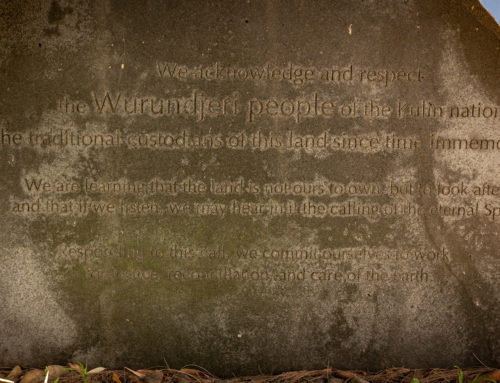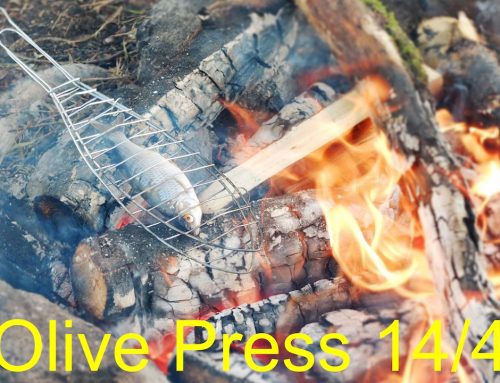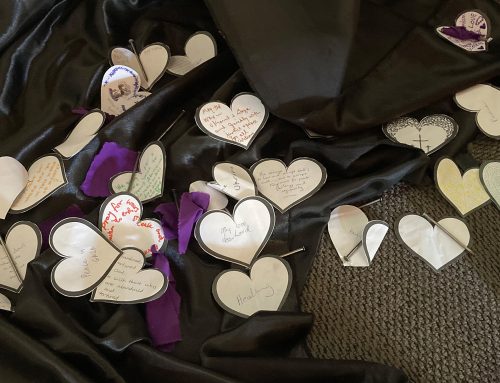It was such a privilege to welcome Areej Masoud to speak on the topic ‘Any hope for peace in Palestine now, or ever?’ Areej is a Palestinian Christian born in Bethlehem, who lives with minutes from the birthplace of Jesus. Currently, she works as the Development and Communications Department Coordinator at Bethlehem Bible College.
Our congregation was a foundation sponsor for the Palestine Israel Ecumenical Network Tour which saw Areej speak to a lot of people in a variety of settings over three weeks. Our ‘Glitter Balls & Big Hair – Musical Bingo’ event in 2017 raised $3,446.15 which, with a further anonymous $3,000 donation, was a significant and welcome contribution to the tour. During worship Areej thanked us for our welcome and our sponsorship of the tour. She then presented Ian with a beautiful communion chalice and plate made of olive wood from Jerusalem.
Tim Budge, former Executive Officer of the PIEN network introduced Areej, speaking of her many speaking commitments and that the impact she has made in the brief time she has been in Australia speaking about her life in Palestine and for Palestinian Christians. Areej began by commenting that living in Palestine is not easy. She said that when she returned at the age of 7 that she noticed almost immediately the impact of occupation on her life and the resulting restrictions. She shared what a normal day is life including severe water restrictions, the walls that are her daily view, of intentionally looking for the soldiers who are often no more than 18 years old, of disruptions at work caused by tear gas, of the hours that in can take to get to work which is only a 15 minute drive from her home and ultimately having to give up her job because of the hours that she had to miss. She commented that she has never celebrated Easter in the Holy Sepulchre.
Areej shared an experience of seeking to go through a checkpoint to an appointment and being asked for documentation that is not normally required. In the midst of the soldiers’ screaming and wanting to scream herself she asked herself ‘How can I love my enemy in this situation?’. Having learnt that loving her enemy means holding them accountable for their acts of harm to others and themselves, she took a breath to calm down and noticed that the soldier had the words ‘love, humanity, peace’ tattooed on his arm. She said to him ‘you have a nice tattoo’. She said he stopped screaming and said, ‘okay just once you can pass’. Areej commented this is a form of creative resistance that she uses as a Palestinian Christian. She concluded by reminding us that our policies have an impact on the lives of Palestinian Christians and that we can speak up and make a difference.
A recording of Areej’s presentation and question time is available here.
Saide Cameron, 2/11/18









Leave A Comment